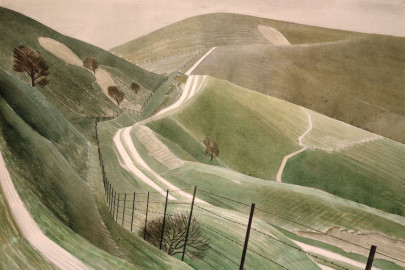If you would like to read the funniest book in the English language, get hold of Jerome K Jerome’s Three Men in a Boat (available for 1p – or even less – here) Take no notice of those who tell you to read The Diary of a Nobody by George Grossmith instead. They are misguided. In fact, they are simply wrong. To say that The Diary of a Nobody is even funny, let alone the funniest book in the English language, is really to talk complete nonsense. The Diary of a Nobody is actually one of the cruellest, most mean-spirited books in any language. It invites its readers to embark on a prolonged scornful snigger, punctuated with sneers, as they watch the book’s pitifully deluded main character repeatedly make a fool of himself.
Three Men in a Boat, on the other hand, mocks nothing. Instead, it makes its readers laugh out loud at the sheer ridiculousness of life. By way of frequent – almost constant – digressions and a fair number of parodies of other, far more solemn works, Jerome K Jerome unfolds his gentle story. Not totally unsurprisingly, it is a tale of three men – the narrator, his friends, George and Harris – plus a dog called Montmorency, and the holiday in a boat they take in about 1885 or so. The events laid before us are of very little consequence. It is the way they are told that counts.
The book begins by introducing the three main characters. We meet them just as they hit upon the idea of making their trip. Almost immediately, the trip is forgotten and we are led off into an account of the narrator’s encounter with a medical encylopedia – ‘I idly turned the leaves … I forget which was the first distemper I plunged into .. [but] it was borne in upon me that I had fairly got it … in the listlessness of despair, I again turned over the pages … I … turned up St Vitus’s Dance … I had that too …I plodded conscientiously through the twenty-six letters, and the only malady I could conclude I had not got was housemaid’s knee. I felt rather hurt about this at first; it seemed somehow to be a sort of a slight.’
From there, we move on to an anecdote about sea-sickness. After that, we come back, momentarily, to an explanation of the planning for the trip, sliding off again thereafter into a discussion of the drawbacks of camping – ‘… you dream that an elephant has suddenly sat down on your chest, and that a volcano has exploded and thrown you down to the bottom of the sea … your first impression is that the end of the world has come … thousands of people are kicking you, and you are being smothered … You can hear … faint cries coming from underneath your bed …two feet off, you dimly observe a half-dressed ruffian, waiting to kill you, and you are preparing for a life-and-death struggle … when it begins to dawn upon you that it’s Jim … ‘Bally tent’s blown down, I think,’ he says, ‘where’s Bill?’ Then you both raise up your voices and shout for ‘Bill!’ and the ground beneath you heaves and rocks and the muffled voice that you heard before replies from out of the ruin’.
This evolves somehow into a description of the narrator’s Uncle Podger’s attempts to hang a picture – ‘… with the first blow, he would smash his thumb, and drop the hammer, with a yell, on somebody’s toes. Aunt Maria would mildly observe that, next time Uncle Podger was going to hammer a nail into the wall, she hoped he’d let her know in time, so that she could make arrangements to go and spend a week with her mother while it was being done … And then he would have another try, and, at the second blow, the nail would go clean through the plaster, and half the hammer after it, and Uncle Podger be precipitated against the wall with force nearly sufficient to flatten his nose … about midnight the picture would be up – very crooked and insecure, the wall for yards round looking as if it had been smoothed down with a rake …’
We move on next to a discussion of the drawbacks of oil stoves, which transforms seamlessly into the tale of a man who agrees to bring a friend’s cheese back to London from Liverpool and consequently loses his home, finally having to bury the thing on a beach at a sea-side town, which, as a result ‘gained quite a reputation. Visitors said they had never noticed before how strong the air was, and weak-chested consumptive people used to throng there for years afterwards.’ Thus, in its own meandering manner, the narrative flows on, bending and twisting delightfully, just like the river our heroes eventually embark on.
I should point out at this juncture, in case any readers regard humour as an insufficient reason for reading a book, that ‘Three Men in a Boat’ has other properties besides the merely comic. It is in fact a potent restorative force. I know this from experience. In fact, I realised it the very first time I read an extract, one wintry Sunday afternoon some twenty-five years ago.
I was in the country at the time, staying with friends. I wasn’t feeling at all well. I suppose, if I were being brutally honest, I might have to describe what I was suffering from as a ‘hangover’. As a result, while all the other members of the household, none of whom seemed to be suffering from any ill effects from the night before, ate a hearty lunch and afterwards embarked on a bracing moorland walk, I remained curled up on a window seat, groaning quietly to myself and pretending to read.
I was still there when the party returned. They banged in cheerfully, throwing off their outdoor clothing and hurling muddy boots around, bursting with energy and good health. Most headed immediately for the kitchen, where they began to prepare a vast and – to me – nauseating tea. One among them, however, noticed me in passing. Before settling down to his heaped hot-buttered toast and scones with cream and jam, he shoved a book into my feeble hand. It was open and he pointed out a passage. ‘Read it, he said, ‘it will make you feel better.’ I did as I was told – I didn’t have the strength to do anything else. To my surprise, despite my awful headache and my general sense of being more dead than alive, I soon found myself laughing and laughing.
I wish I could remember which passage it was that got me going. It may have been the one describing the party’s attempts at packing, it may have been the episode involving the German singer and the comic songs or it may have been the bit about Harris’s attempts to make his supposedly much sought after scrambled eggs – ‘People who had once tasted his scrambled eggs, we gathered from his conversation, never cared for any other food afterwards, but pined away and died when they could not get them.’
It may have been the description of the three men’s attempts to open a tin of pineapple without a tin opener – ‘We took that tin out on the bank, and Harris went up into a field and got a big sharp stone, and I went back into the boat and brought out the mast, and George held the tin and Harris held the sharp end of his stone against the top of it, and I took the mast and poised it high up in the air, and gathered up all my strength and brought it down … We beat it out flat; we beat it back square; we battered it into every form known to geometry – but we could not make a hole in it … George went at it, and knocked it into a shape, so strange, so weird, so unearthly in its wild hideousness, that he got frightened and threw away the mast. Then we all three sat round it on the grass and looked at it. There was one great dent across the top that had the appearance of a mocking grin …’
It may have been the moment in the narrative, just after all three men have been persuaded to drink river water, that they spot ‘coming down towards us on the sluggish current, a dog. It was one of the quietest and peacefullest dogs I have ever seen. I never met a dog who seemed more contented – more easy in its mind. It was floating dreamily on its back, with its four legs stuck up straight in the air.’
Perhaps it was the account of George’s attempts to learn the banjo or of another person’s efforts to learn the bagpipes – ‘they let him practise in the day-time, in the back-kitchen with all the doors shut … [he] only learnt to play one tune … Strangers were allowed three guesses, and most of them guessed a different tune each time’ – or possibly the famous passage on work – ‘I like work; it fascinates me. I can sit and look at it for hours …I am careful of my work, too. Why some of the work that I have by me now has been in my possession for years and years, and there isn’t a fingermark on it. I take a great pride in my work; I take it down now and then and dust it. No man keeps his work in a better state of preservation than I do.’
I suppose it doesn’t matter which one it was though. The truth is it could have been any part of the book at all. There is barely a single page in the entire volume that is not guaranteed to cheer the reader up. Open the thing anywhere, pick a paragraph at random. In no time you will, to use that curious expression, be ‘laughing like a drain’.












Although I profoundly disagree re your dissing of Diary of a Nobody, I profoundly agree re Three Men in a Boat.
Growing up, the epithet ‘Uncle Podger’ was commonly bandied about in our house, for when somebody’s idea of ‘doing a job’ is actually just delegating everybody else to do all the bits of it, then claiming credit.
One of the most self-indulgently unfunny pieces of TV I’ve ever seen was the BBC’s loose adaptation of this book involving G Rhys-Jones and others. Difficult to forgive.
And I second Brit (as you know, Z) regarding Diary of a Nobody. I am Pooter and so feel unabashed about laughing at him (I even wanted to call one of my boys ‘Lupin’ but wasn’t allowed).
We are all Pooter, Gaw. Virtually all blogs could quite aptly be called ‘Diary of a Nobody’.
I hope you felt well enough to tuck into the heaped hot-buttered toast and scones with cream and jam after your read. Sounds absolutely delicious, even with a hangover. Or perhaps especially with a hangover.
We are all Pooter indeed Brit (and I must admit I find the Diary more quietly and consistently funny than Three Men in a Boat – the comic set pieces are fine, if a touch laboured and ‘hearty’, but Three Men is marred by some decidedly unfunny digressions in purple prose which are best skipped). Dairy of a Nobody, of course, is a blog – http://www.diaryofanobody.net/
I’m with you lot above – I always found the matey guffawiness of TMIAB a bit forced, excellent set pieces aside. DOAN on the other hand is right up my street. I like that vein of cruel humour, of the sort that has lead to things like Alan Partridge and Human Remains.
“As it was getting on for five, we four held a consultation, and Gowing suggested that we should make for “The Cow and Hedge” and get some tea. Stillbrook said: “A brandy-and-soda was good enough for him.” I reminded them that all public-houses were closed till six o’clock. Stillbrook said, “That’s all right—bona-fide travellers. We arrived; and as I was trying to pass, the man in charge of the gate said: “Where from?” I replied: “Holloway.” He immediately put up his arm, and declined to let me pass. I turned back for a moment, when I saw Stillbrook, closely followed by Cummings and Gowing, make for the entrance. I watched them, and thought I would have a good laugh at their expense, I heard the porter say: “Where from?” When, to my surprise, in fact disgust, Stillbrook replied: “Blackheath,” and the three were immediately admitted. Gowing called to me across the gate, and said: “We shan’t be a minute.” I waited for them the best part of an hour. When they appeared they were all in most excellent spiritsand the only one who made an effort to apologise was Mr. Stillbrook, who said to me: “It was very rough on you to be kept waiting, but we had another spin for S. and B.’s.” I walked home in silence; I couldn’t speak to them. I felt very dull all the evening, but deemed it advisable not to say anything to Carrie about the matter.
April 16.—After business, set to work in the garden. When it got dark I wrote to Cummings and Gowing (who neither called, for a wonder; perhaps they were ashamed of themselves) about yesterday’s adventure at “The Cow and Hedge.” Afterwards made up my mind not to write yet.
April 17.—Thought I would write a kind little note to Gowing and Cummings about last Sunday, and warning them against Mr. Stillbrook. Afterwards, thinking the matter over, tore up the letters and determined not to write at all, but to speak quietly to them. Dumfounded at receiving a sharp letter from Cummings, saying that both he and Gowing had been waiting for an explanation of my (mind you, MY) extraordinary conduct coming home on Sunday. At last I wrote: “I thought I was the aggrieved party; but as I freely forgive you, you—feeling yourself aggrieved—should bestow forgiveness on me.” I have copied this verbatim in the diary, because I think it is one of the most perfect and thoughtful sentences I have ever written. I posted the letter, but in my own heart I felt I was actually apologising for having been insulted.”
I rarely get further into the book than this. He seems so lonely – like the child who is always left out at school. I wish I could enjoy it.
Blimey, that’s worth every penny. The only book to have me in tears. Ripping yarn stuff. The pineapple tin – classless and timeless!
I read Diary of a Nobody too, I just can’t remember much about it and no one ever discussed it down the pub. I’d happily sell it for a penny.
At last, some sanity enters the debate.